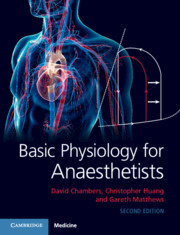Book contents
- Basic Physiology for Anaesthetists
- Basic Physiology for Anaesthetists
- Copyright page
- Dedication
- Contents
- Foreword
- Preface to the Second Edition
- Preface to the First Edition
- Abbreviations
- Section 1 The Basics
- Section 2 Respiratory Physiology
- Section 3 Cardiovascular Physiology
- Section 4 Neurophysiology
- Section 5 Gastrointestinal Tract
- Section 6 Kidney and Body Fluids
- Section 7 Blood and Immune System
- Section 8 Energy Balance
- Section 9 Endocrine Physiology
- Section 10 Developmental Physiology
- Chapter 82 Maternal Physiology during Pregnancy
- Chapter 83 Foetal Physiology
- Chapter 84 Paediatric Physiology
- Chapter 85 Physiology of Ageing
- Chapter 86 Physiology of Obesity
- Section 11 Environmental Physiology
- Index
- References
Chapter 85 - Physiology of Ageing
from Section 10 - Developmental Physiology
Published online by Cambridge University Press: 31 July 2019
- Basic Physiology for Anaesthetists
- Basic Physiology for Anaesthetists
- Copyright page
- Dedication
- Contents
- Foreword
- Preface to the Second Edition
- Preface to the First Edition
- Abbreviations
- Section 1 The Basics
- Section 2 Respiratory Physiology
- Section 3 Cardiovascular Physiology
- Section 4 Neurophysiology
- Section 5 Gastrointestinal Tract
- Section 6 Kidney and Body Fluids
- Section 7 Blood and Immune System
- Section 8 Energy Balance
- Section 9 Endocrine Physiology
- Section 10 Developmental Physiology
- Chapter 82 Maternal Physiology during Pregnancy
- Chapter 83 Foetal Physiology
- Chapter 84 Paediatric Physiology
- Chapter 85 Physiology of Ageing
- Chapter 86 Physiology of Obesity
- Section 11 Environmental Physiology
- Index
- References
Summary
Ageing involves processes not only of physical but also of psychological and social change. Increasing numbers of elderly people are undergoing elective and emergency surgery, with post-operative complications being more common in the older population. It is important to understand the normal changes that occur with advancing age so that anaesthetic techniques can be modified and to allow early identification of anaesthetic and surgical complications.
- Type
- Chapter
- Information
- Basic Physiology for Anaesthetists , pp. 422 - 426Publisher: Cambridge University PressPrint publication year: 2019



